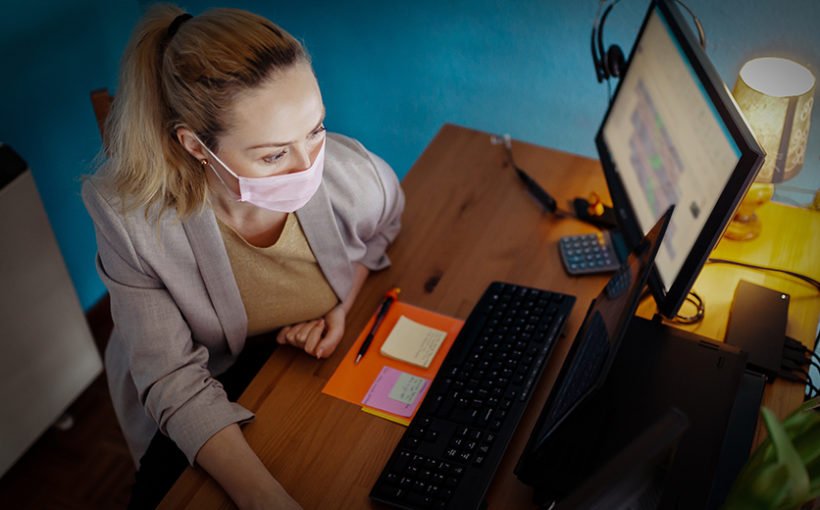After several weeks of teleworking because of the global crisis, it has undoubtedly become a win-win for many of us. Flexibility, time savings, energy savings and a sustainable impact on the environment… Will the future belong to e-workers? Will the cloud become the number one professional tool?
Even before Covid-19, many studies have shown the environmental impact of remote working. Whether it is greenhouse gas emissions, energy consumption, dependence on fossil fuels, air pollution or the production of non-recyclable waste, the result is often unanimous: by working from home, we preserve our cities, our countryside and our planet. But the impact is not only environmental, because remote working also allows a better balance between work and family life, especially for parents, provided they are properly equipped and organised. With young children at home, reconciling work and family life can indeed be a challenge.
Numbers that speak for themselves
Glassdoor, one of the world’s largest job and recruiting sites, carried out a survey in France at the end of March following the confinement of almost all French people to their homes. 79% of respondents say they are in favour of remote working and 56% believe that the current situation will lead to a long-term easing of telework policies. On the other hand, only 15% of respondents felt that they could not do their work remotely. Revealing: when asked to list the possible distractions during telework hours, 39% cite the family and children, 34% the television and 11% would take advantage of it to have … a little nap.
The consultancy firm Gartner interviewed CFOs about the impact of telework on their activities: 90% of them are confident that a balance sheet could very well be made remotely. A quarter of respondents are already thinking about converting 20% of their workforce into teleworkers. However, only 13% of them have already reduced their real estate expenses.
The most surprising number: a flexible office operator interviewed French people and was able to deduce that 89% of the workers interviewed had never experienced telework before the current confinement. The most commonly cited reason was that they did not have a room dedicated to work or sufficient equipment at home.
Face-to-face or not?
It’s the question of our era. Ever since the entire world came home to work, there’s been a lot of discussion as to whether one needs to work face-to-face or rather remotely or virtually. But is it indeed the entire world? Not really: some jobs are easier to do remotely than others. Some commentators fear remote work may create inequality between white collars and blue collars, the latter doing more manual and practical work. So we can’t just apply the same principles to the entire workforce. These differences are sometimes accentuated by region (urban or rural), country or continent. A simple example of these disparities: access to a fast internet connection, which is far from a reality for all workers.
We are only beginning to imagine the effects that this surge in teleworking will have on business and administrations: in the USA, some groups of Congress are considering decentralising (and digitising) some legislative work; others are advocating for the development of secure e-mail voting. And everyone in academia is watching the impact of the crisis on remote education.

Françoise Leroux, psychologist and systemic psychotherapist
Manage your freedom
Françoise Leroux, a psychologist and systemic psychotherapist from Brussels, weighs this enthusiasm: she believes that “in order for telework to be established sustainably, people will have to manage this freedom, have a little self-discipline and control. It will also involve training and a new way of looking at management. Personally, I think remote working is ideal, but rather part-time because the distance can damage the relations within a company.”
Of course, it remains to be seen how this major trend will evolve once the economy has restarted. Susan Athey, a professor of economics at the Stanford Graduate School of Business, told The Washington Post that “people have changed their habits, and some of those habits will continue after the crisis. For a whole number of things, societal developments are very slow. The crisis has accelerated these changes.” So one can reasonably assume this practice will indeed become long-term. It is probably even more likely that this crisis will have found a balance between the usefulness of a space conducive to concentration for a certain type of work and the essential need for physical presence for the social beings that we are.
Tags: covid 19, Environment, face-to-face, Françoise Leroux, remote working, Susan Athey, telework








































